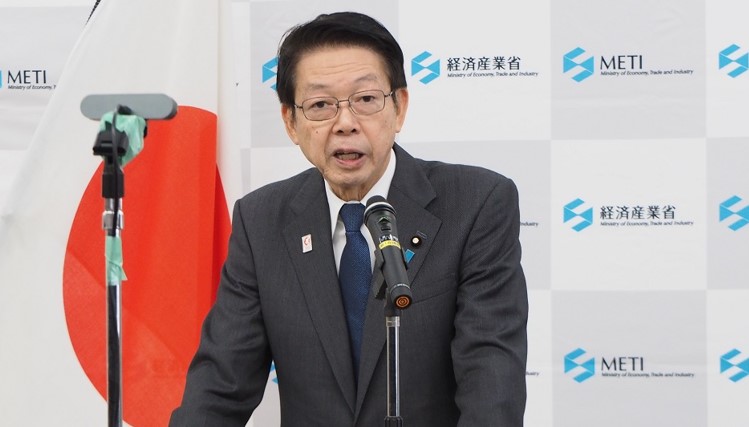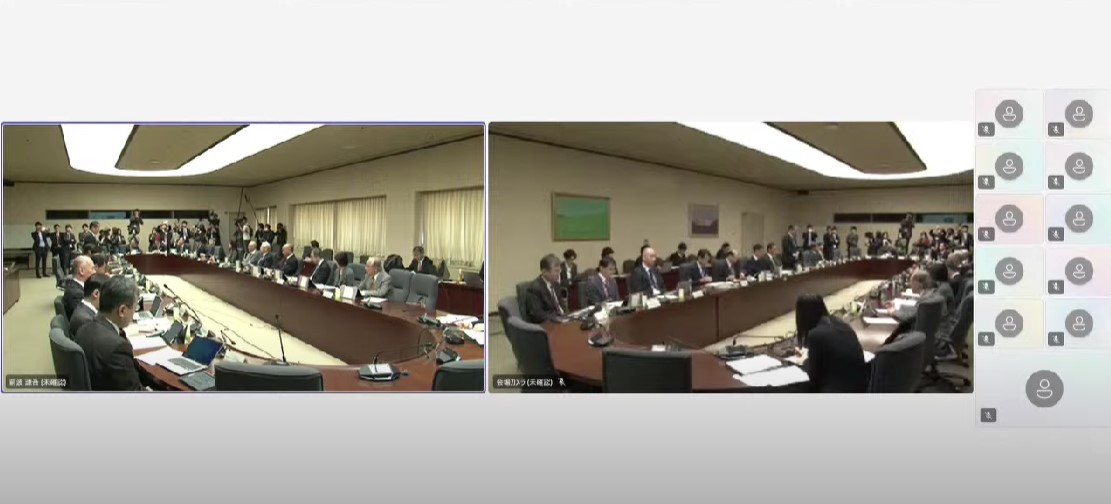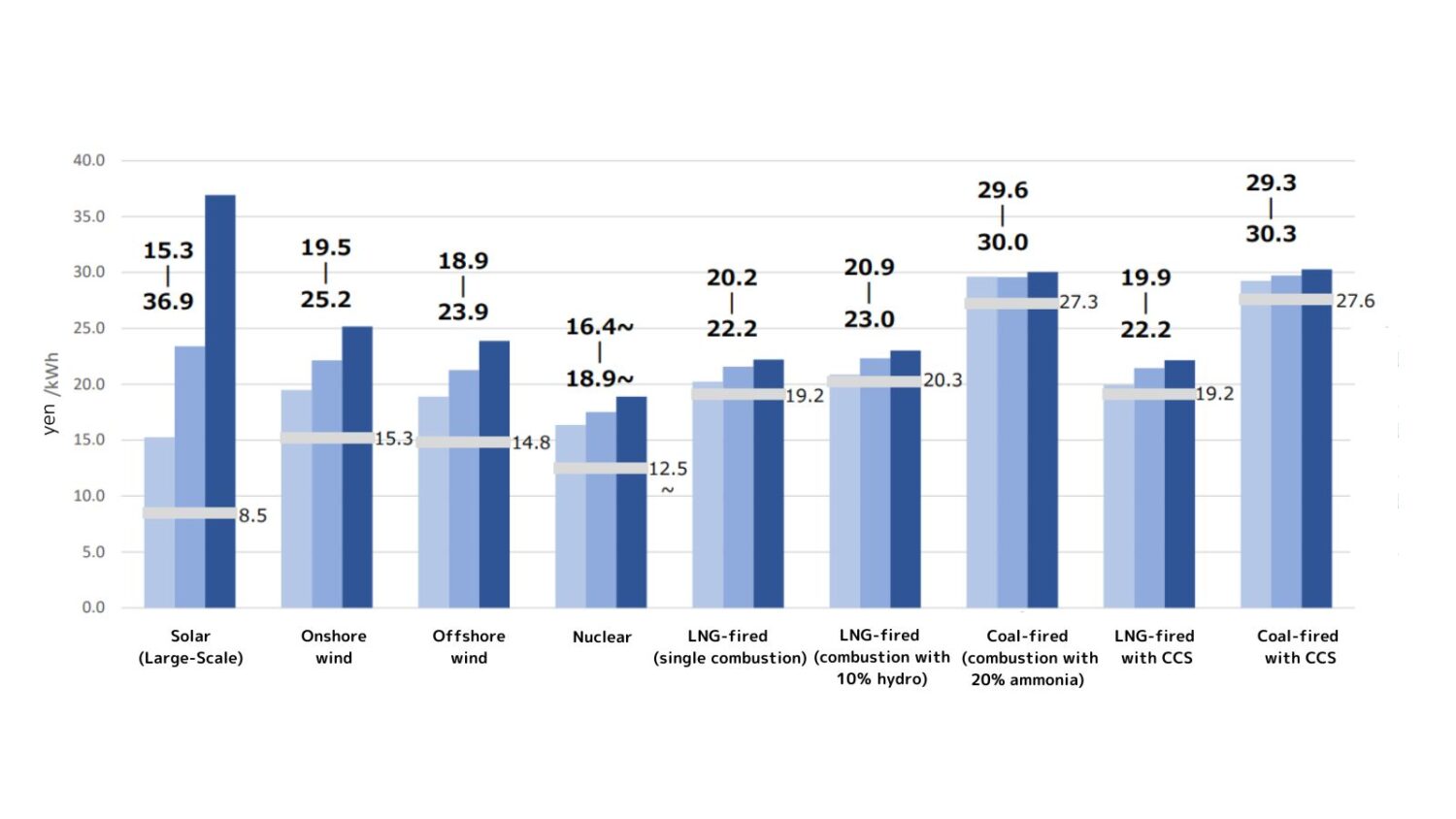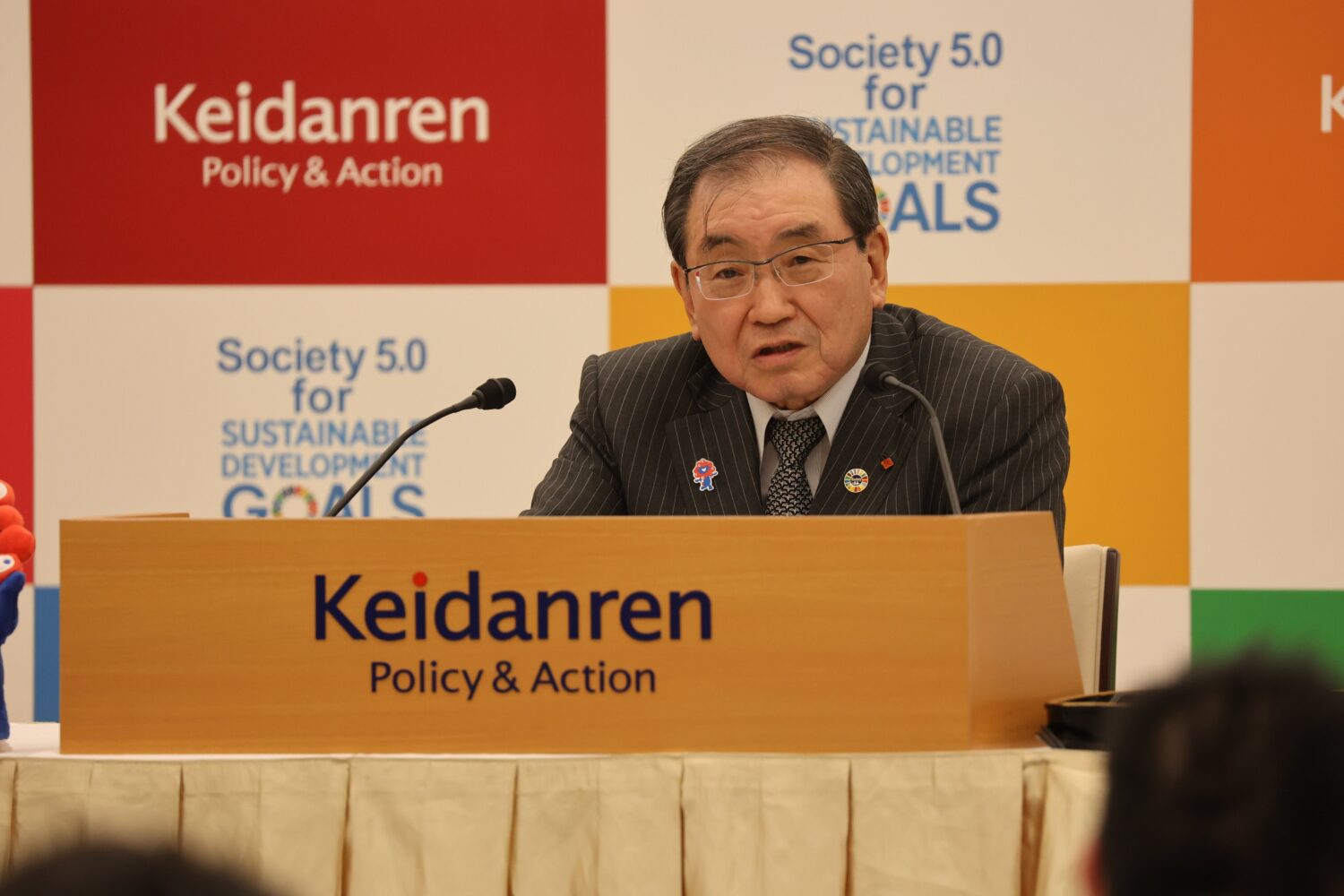The main pillars of the policies are as follows:
- New growth through DX (a digital technology proposal released in May).
- Reform of Japan’s work system.
- Regional revitalization.
- Re-establishment of the international economic order.
- The achievement of green growth.
The strategy presents an image of Japan’s becoming “a society where global environmental sustainability and affluent lives are compatible.” Regarding the current government’s aim of becoming carbon-neutral by 2050 (namely, net-zero CO2 emissions), Keidanren points out that existing activities are inadequate.
To further accelerate Japan’s innovation toward a carbon-free society, the report says that the development of innovative technologies and their use should be positioned as the nucleus of industrial policy, with the launch of such national projects as next-generation storage batteries. It calls on the government to make a long-term commitment of national resources, enabling joint activities by private industry, academia, and the government.
Reiterating the importance of nuclear power—describing it an essential technology—Keidanren proposes the development of advanced reactors, including small modular reactors (SMRs), high-temperature gas-cooled reactors (HTRs), and nuclear fusion reactors, and for them to be carried out as national projects, with construction to begin by 2030. It also calls for the continuation of efforts to improve safety, and for the restart of existing reactors.
Under current circumstances, with so few reactors being restarted in Japan, Keidanren emphasizes the need for technologies and know-how to be maintained in the areas of reactor construction, operation, and maintenance, calling it a pressing issue. It also says that the national government should take the lead in the issue and squarely address the necessity of nuclear power.
In the document’s introduction, Keidanren Chairman Hiroaki Nakanishi explains that the initial period marks the end of the growth strategy to date, followed by a new growth strategy. That, he says, represents the organization’s enthusiasm in presenting the new strategy.
Speaking with the press after a Cabinet meeting on November 1 about the release by Keidanren of the New Growth Strategy, Minister Hiroshi Kajiyama of Economy, Trade and Industry (METI) first talked about nuclear policy. Reiterating that the government would endeavor to recover the confidence of the people in order to promote restarts of existing reactors, he clearly stated that there has been no change in governmental policy that construction of new reactors and replacement of older ones are not being considered.
As for the achievement of Japan’s goal to become carbon-neutral by 2050, Nakanishi said that it was important to pursue all options—not just renewables also but nuclear power—and to make the best use of any available technology. The minister indicated that METI, which is responsible for Japan’s energy policy, would take the lead in the interest of consistent discussions.












